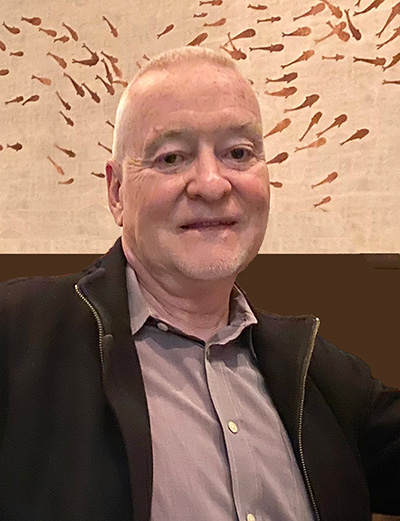 LIKE HE SAID — he being Seb Coe. Early in this early-August week in which I put pen to paper (metaphorically) I was fortunate to be invited to join a media video chat with the WA President.
LIKE HE SAID — he being Seb Coe. Early in this early-August week in which I put pen to paper (metaphorically) I was fortunate to be invited to join a media video chat with the WA President.
Coe’s name and reputation in my admiring mind is inseparable from a golden era in the sport, those late-’70s/early-’80s years in which British middle distance ace Coe traded can-you-top-this performances with countryman and rival Steve Ovett.
There was more to the period’s story than just the two milers and their bravura circuits of the oval — a lot more, including lamentations they met head-to-head too infrequently for the public’s taste. Also darker sides than that unconnected to either Brit mile star, but fear not, my present musing ain’t headed there.
The sport’s most fan-friendly grand slam of 4 decades ago when Coe and his bright light contemporaries thrilled us lucky onlookers was the inauguration of World Championships with Helsinki ’83.
In his pre-Budapest video chat Coe offered a prediction about the soon-to-play-out Worlds XIX. “It’s not an exact science, it never is,” he admitted, “but I think that we could well be witnessing a championships for the ages, given just the quality of the performance of the athletes this year.”
I find myself all in with Lord Coe on this point, who adeptly described the landscape of the here and now: “Within the first couple of days of June, for a Diamond League [Florence] I was privileged to be in a stadium watching Faith Kipyegon become the first woman under 3:50 in the 1500.
“I wasn’t as lucky as my CEO Jon Ridgeon [also the 110H silver medalist at the second Worlds in ’87], who was in Paris the following weekend. He saw 3 World Records and it sort of continued from there.
“They’ve not all been Diamond League. I mean, some of the performances we’ve seen in Continental Tour, in national championships, Ryan Crouser, of course, adding to his own World Record… Femke Bol the other day breaking her European 400H record, Karsten Warholm comfortably running 46 and bits [and don’t forget Rai Benjamin doing the same at the USATF Championships]…
“Wherever you look, you’ve got some really outstanding performers and let’s just keep our fingers crossed that they maintain their form and their health through to Budapest and potentially some great head-to-head if you’re sitting there as a predictor of the Championships.”
This column is a space too small for mentioning all the current highlight stars we’ll soon watch take the field in Hungary. That’s for other pages in Track & Field News and our much-nearer-real-time web newsfeed.
Coe’s not wrong. He’s right. At least I think so. Grab your popcorn. If you’ll be joining us in Budapest’s new stadium — seating “40-something thousand,” says Coe, “but it’s intimate and I think the atmosphere in there will be terrific.” — you are in for a treat. If not, catch it on your TV, your phone, your device. “300 hours of broadcast,” is the figure Coe quoted. “We’ve got our own host broadcaster taking 400 people out there, 10 outside broadcast units, and about 120 cameras, 2½ thousand volunteers. [Budapest] is a city that is prepared for a big event.”
Now I again don my nostalgia cap and revel in memories of the leadup to Helsinki ’83. A callow yet bowled over Sieg Lindstrom sat in Stockholm’s Olympic Stadium in July of ’81 and watched Coe win a 1500 in 3:31.95 from a bang-up field.
Not a WR, the No. 3 all-time performance at the time, it was nevertheless a big race in an era full of them. A month before Coe had knocked out a 1:41.73 WR for 800, the first sub-1:42. He reigned for a second time that season as T&FN Men’s Athlete Of The Year.
At the Stockholm meet, I also watched a discus WR, and on day 2 of the meet TJ hero Willie Banks spanned 57-7, a near-record. Banks could play to the crowd.
Two years earlier Coe claimed the 1500 WR (3:32.03). Ovett cut 0.67 from his mark in ’80. Both ran faster in ensuing seasons. The sport was in feverish ferment.
The era we’re living is ringing bells for me. Is it even greater? Who knows? Shoes, tracks, training have progressed. Debates are grand fun too.
Yet bear in mind that moments on the World Champs stage are rare, hard-earned and often elusive wealth. Seb Coe, boundary-pushing hero of the middle distances, missed that first Worlds in Helsinki 40 years ago. Injury, illness, other factors too can break an athlete’s date with destiny.
That’s sport. Fortune can be fickle — yet it should be noted that Coe repeated as Olympic 1500 gold medalist in ’84. Looking forward to Budapest, Coe told our crowd full of questions this week, “I want the best of the best to shine. I want big indelible moments that people take away in exactly the same way they did in ’91 with the Carl Lewis/Mike Powell long jump competition.’… I want a whole cluster of those.”
I bet you do too.